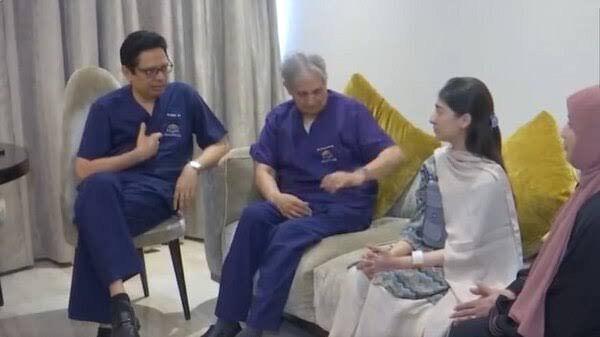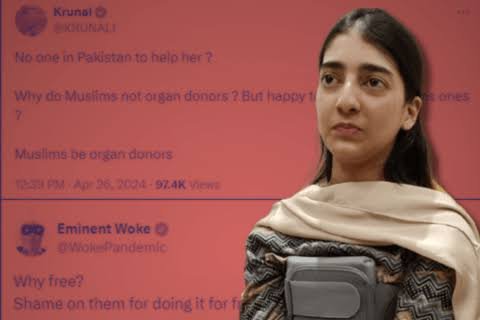
That is a heartwarming story. Ayesha Rashid, a 19-year-old girl from Karachi, Pakistan, has been given a new lease on life following a successful heart transplant surgery in Chennai, India. The surgery was made possible by the kindness of an Indian heart donor, as well as the medical staff at MGM Healthcare’s Institute of Heart and Lung Transplant.
Ayesha had been suffering from a severe heart condition since 2019, which resulted in heart failure. The hospital and Chennai’s Aishwaryam Trust supported the transplant process, which cost more than Rs 35 lakh. Dr. KR Balakrishnan and Dr. Suresh Rao learnt of Ayesha’s emergency and the financial support she required, and they worked quickly to give the necessary care.
The heart utilized in the transplant came from a 69-year-old brain-dead patient in Delhi. Ayesha and her mother expressed gratitude to the Indian government for providing an emergency visa for the procedure. This act of cross-border medical collaboration emphasizes the shared humanity and compassion that exists across national borders.
Ayesha, who dreams to be a fashion designer, is now preparing to return to Pakistan with a fresh start and new hopes for the future. It’s a lovely demonstration of how compassion and medical knowledge can work together to save lives.
for more official information follow this website.
What are the challenges of cross-border Heart and other organ transplantation?

Cross-border organ transplants provide a number of problems that can exacerbate the process. Here are some of the main issues:
- Logistical Challenges: Transporting organs across borders can be difficult due to the necessity for prompt and safe delivery. Significant aircraft delays, airline staffing shortages, and increasing cancellation rates can all result in organs not reaching their intended recipients on time.
- Legal and ethical issues: Different nations have different laws and regulations governing organ donation and transplantation. This can lead to ethical quandaries and legal issues, particularly in transplant tourism, which risks exploiting disadvantaged communities.
- Healthcare System Differences: Medical tourism adds complications such as negotiating various healthcare systems, regulations, and cultural obstacles. Maintaining continuity of care and communication across borders can be difficult.
- Equity in Access: Access to organ transplants is unequal based on social determinants of health such as race, income, education, region, and insurance status. These discrepancies may be amplified in cross-border transplants.
- Costs: Cross-border transplants can be very costly. Many people find the price of traveling, surgery, post-operative care, and probable complications prohibitively expensive.
- Immunologic Considerations: Matching donor organs to recipients from diverse groups may necessitate additional immunological considerations to ensure compatibility and lower the chance of rejection.
- Cultural Sensitivity: Cultural differences in views toward organ donation and transplantation can influence individuals’ willingness to donate or receive organs from foreign donors.
These issues demand careful coordination and cooperation between medical teams, legal authorities, and organ donors organizations to ensure successful and ethical transplant outcomes.
for more interesting update follow our official website.
